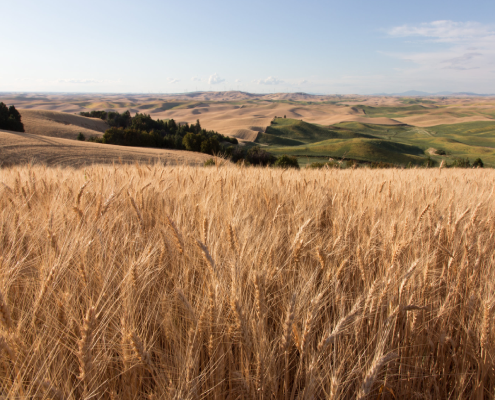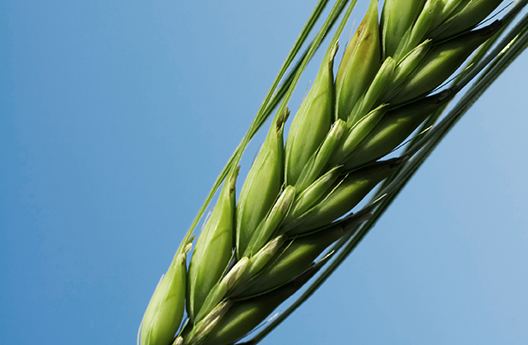By Amanda J. Spoo, USW Communications Specialist
Every year USW sends teams of U.S. farmers overseas to visit markets they supply with wheat. These regional visits highlight the day-to-day work and marketing strategies of USW’s overseas offices and connect the farmers to their customers and industry stakeholders.
“The feedback we hear consistently from our customers is how much they appreciate getting to know the farmer firsthand,” said USW Vice President of Overseas Operations Vince Peterson. “These team visits give farmers the opportunity to follow their wheat overseas, and as businessmen and women, those personal connections are invaluable.”
USW Communications Specialist Amanda Spoo will lead USW’s 2017 South Asia Board Team to Thailand and the Philippines in February. The team includes Dustin Johnsrud, a wheat farmer from Epping, ND, serving his first four-year term on the North Dakota Wheat Commission; Denise Conover, a wheat farmer from Broadview, MT, and a director on the Montana Wheat and Barley Committee; and Clint Vanneman, a wheat farmer from Ideal, SD, and a current USW director representing the South Dakota Wheat Commission.
The team will first meet at the USW West Coast Office in Portland, OR, for briefings by USW and the Wheat Marketing Center, as well as visits to the Federal Grain Inspection Service and the local United Grain export terminal. During three days in Thailand, the team will visit the United Flour Mills (UFM) Baking and Cooking School as well as tour a flour mill, a bakery and an international food manufacturing plant. The second leg of the trip features two days in the Philippines, which includes tours of a mill and a food manufacturer. The team will also have the opportunity to attend the Filipino-Chinese Bakery Association Inc. (FCBAI) Bakery Fair.
The Thai milling wheat market has grown at a robust 5 percent for the past two years. USDA estimates that milling wheat demand reached 1 MMT for the first time in the 2012/13 marketing year and has increased to 1.24 MMT in 2016/17. Customers there imported about 50 percent of their milling wheat from the United States in 2015/16. In an evolving Thai market, consumer preferences are changing and there is increased demand for baked goods, biscuits and noodles. Over the past four decades, USW has worked closely with the UFM Baking and Cooking School in Bangkok to train and provide technical assistance to South Asian bakers and demonstrate the quality and value of U.S. wheat classes.
The Philippines was the third largest buyer of U.S. wheat in the 2015/16 marketing year with total imports reaching almost 2.2 MMT and was the largest buyer of both soft white (SW) and hard red spring (HRS). In this dynamic market, USW continues to help the milling and baking industry navigate changes by providing technical assistance and marketing training, and investing in activities to increase wheat flour consumption. USW established an office in Manila in 1961, allowing USW to maintain close, long-term relationships with industry leaders in the Philippines.
“Visiting these markets will give the farmers a unique look at the value of using high quality U.S. wheat and why these markets prefer it for their end-products,” said Peterson.
The team will post regular travel updates and photographs, and will report to the USW board. Follow their progress on the USW Facebook page at www.facebook/uswheat and on Twitter at @uswheatassoc.



